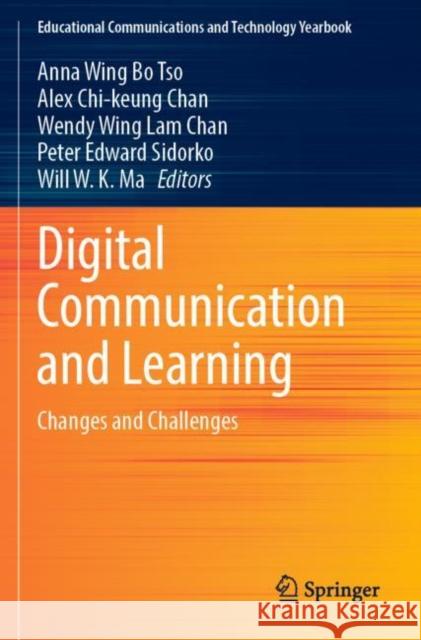Digital Communication and Learning » książka
Digital Communication and Learning
ISBN-13: 9789811683312 / Angielski / Miękka / 2023
Digital Communication and Learning
ISBN-13: 9789811683312 / Angielski / Miękka / 2023
(netto: 575,06 VAT: 5%)
Najniższa cena z 30 dni: 578,30
ok. 16-18 dni roboczych.
Darmowa dostawa!
This edited book collects papers with perspectives from scholars and practitioners in Asia, Australia, and Europe to reveal the pros and cons, chances and challenges, constraints, and potential risks that educators and learners are facing as the new paradigm for communication and learning takes place, with a view to shedding light on the global education climate in the midst of the pandemic. Since the onset of the global pandemic, education has been revolutionized in almost every aspect. The emergency precautionary measures which were once supposed to be temporary school arrangements only have now become the new normal, reshaping our understanding of learning environments, redefining the pedagogic standards in terms of teaching practices, learning designs, teacher–student interaction, feedback, and assessment. Online teaching, distanced learning, flipped classrooms, and self-paced e-learning have all played an increasingly vital role in shaping a new education culture in various education settings, affecting school management, teachers, students, and parents alike. While ICT in education, alongside new media, has provided ample benefits and convenience for educators and students, communication and virtual lessons conducted in the socially distanced classroom appear to have brought issues such as the digital divide, e-mental health, insufficient technical support, inefficient classroom management, reduced interaction between teachers and students, not to mention the growing concerns over privacy and security.











